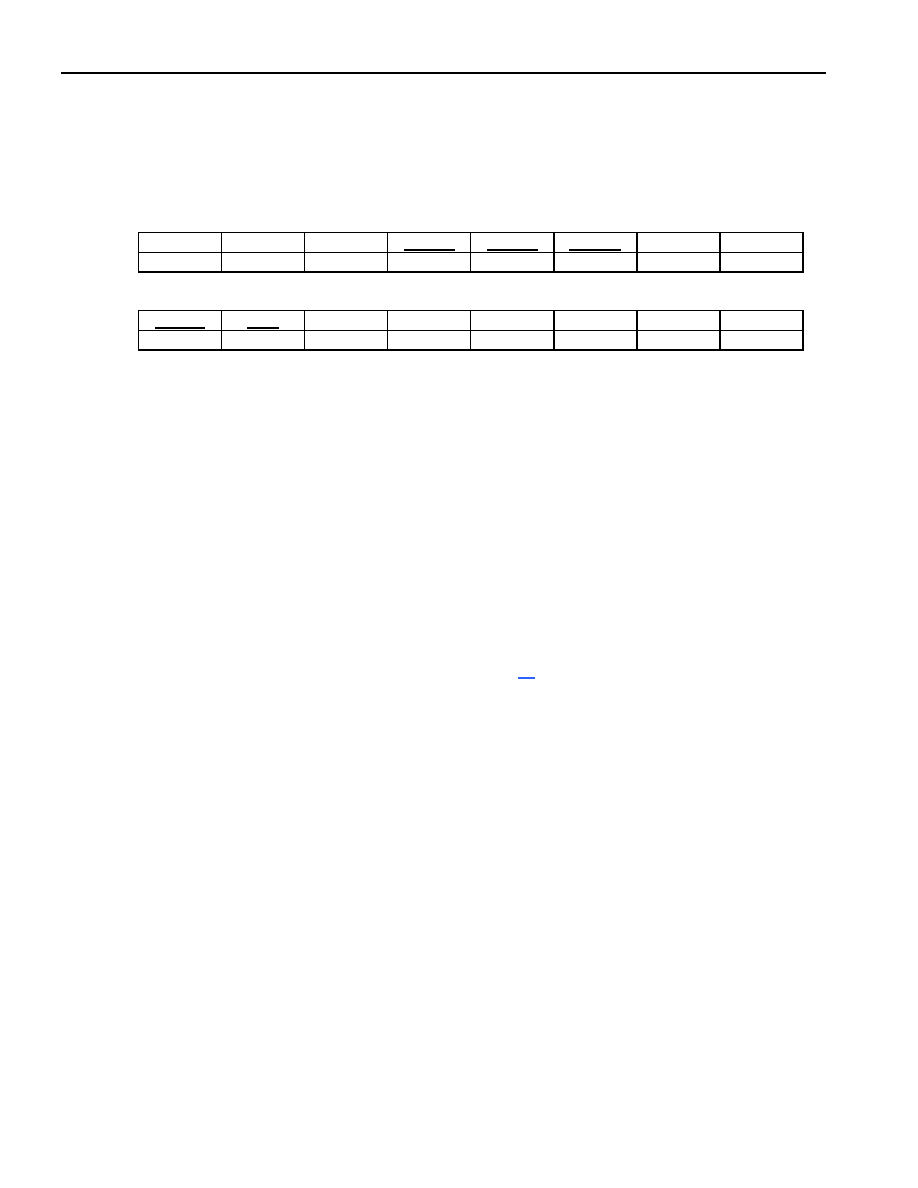- 您現(xiàn)在的位置:買賣IC網(wǎng) > PDF目錄97869 > DS3131 (MAXIM INTEGRATED PRODUCTS INC) SPECIALTY TELECOM CIRCUIT, PBGA256 PDF資料下載
參數(shù)資料
| 型號: | DS3131 |
| 廠商: | MAXIM INTEGRATED PRODUCTS INC |
| 元件分類: | Telecom IC:Other |
| 英文描述: | SPECIALTY TELECOM CIRCUIT, PBGA256 |
| 封裝: | 27 X 27 MM, PLASTIC, BGA-256 |
| 文件頁數(shù): | 111/174頁 |
| 文件大小: | 1261K |
| 代理商: | DS3131 |
第1頁第2頁第3頁第4頁第5頁第6頁第7頁第8頁第9頁第10頁第11頁第12頁第13頁第14頁第15頁第16頁第17頁第18頁第19頁第20頁第21頁第22頁第23頁第24頁第25頁第26頁第27頁第28頁第29頁第30頁第31頁第32頁第33頁第34頁第35頁第36頁第37頁第38頁第39頁第40頁第41頁第42頁第43頁第44頁第45頁第46頁第47頁第48頁第49頁第50頁第51頁第52頁第53頁第54頁第55頁第56頁第57頁第58頁第59頁第60頁第61頁第62頁第63頁第64頁第65頁第66頁第67頁第68頁第69頁第70頁第71頁第72頁第73頁第74頁第75頁第76頁第77頁第78頁第79頁第80頁第81頁第82頁第83頁第84頁第85頁第86頁第87頁第88頁第89頁第90頁第91頁第92頁第93頁第94頁第95頁第96頁第97頁第98頁第99頁第100頁第101頁第102頁第103頁第104頁第105頁第106頁第107頁第108頁第109頁第110頁當前第111頁第112頁第113頁第114頁第115頁第116頁第117頁第118頁第119頁第120頁第121頁第122頁第123頁第124頁第125頁第126頁第127頁第128頁第129頁第130頁第131頁第132頁第133頁第134頁第135頁第136頁第137頁第138頁第139頁第140頁第141頁第142頁第143頁第144頁第145頁第146頁第147頁第148頁第149頁第150頁第151頁第152頁第153頁第154頁第155頁第156頁第157頁第158頁第159頁第160頁第161頁第162頁第163頁第164頁第165頁第166頁第167頁第168頁第169頁第170頁第171頁第172頁第173頁第174頁

DS3131
41 of 174
5.3.2 Status and Interrupt Register Description
Register Name:
SM
Register Description:
Status Master Register
Register Address:
0020h
Bit #
7
6
5
4
3
2
1
0
Name
reserved
PPERR
PSERR
SBERT
reserved
Default
0
Bit #
15
14
13
12
11
10
9
8
Name
LBINT
LBE
reserved
Default
0
Note:
Bits that are underlined are read-only; all other bits are read-write.
Bit 2/Status Bit for Change of State in BERT (SBERT). This status bit is set to 1 if there is a major change of
state in the BERT receiver. A major change of state is defined as either a change in the receive synchronization
(i.e., the BERT has gone into or out of receive synchronization), a bit error has been detected, or an overflow has
occurred in either the bit counter or the error counter. The host must read the status bits of the BERT in the BERT
status register (BERTEC0) to determine the change of state. The SBERT bit is cleared when the BERT status
register is read and is not set again until the BERT has experienced another change of state. If enabled through the
SBERT bit in the interrupt mask for SM (ISM), the setting of this bit causes a hardware interrupt at the PCI bus
through the PINTA signal pin and also at the LINT if the local bus is in configuration mode.
Bit 3/Status Bit for PCI System Error (PSERR). This status bit is a software version of the PCI bus hardware
pin PSERR. It is set to 1 if the PCI bus detects an address parity error or other PCI bus error. The PSERR bit is
cleared when read and is not set again until another PCI bus error has occurred. If enabled through the PSERR bit
in the interrupt mask for SM (ISM), the setting of this bit causes a hardware interrupt at the PCI bus through the
PINTA signal pin and also at the LINT if the local bus is in configuration mode. This status bit is also reported in
the control/status register in the PCI configuration registers (Section 10).
Bit 4/Status Bit for PCI System Error (PPERR). This status bit is a software version of the PCI bus hardware
pin PPERR. It is set to 1 if the PCI bus detects parity errors on the PAD and PCBE buses as experienced or
reported by a target. The PPERR bit is cleared when read and is not set again until another parity error has been
detected. If enabled through the PPERR bit in the interrupt mask for SM (ISM), the setting of this bit causes a
hardware interrupt at the PCI bus through the PINTA signal pin and also at the LINT if the local bus is in
configuration mode. This status bit is also reported in the control/status register in the PCI configuration registers
(Section 10).
Bit 14/Status Bit for Local Bus Error (LBE). This status bit applies to the local bus when it is operated in PCI
bridge mode. It is set to 1 when the local bus LRDY signal is not detected within nine LCLK periods. This
indicates to the host that an aborted local bus access has occurred. If enabled through the LBE bit in the interrupt
mask for SM (ISM), the setting of this bit causes a hardware interrupt at the PCI bus through the PINTA signal pin
and also at the LINT if the local bus is in configuration mode. The LBE bit is meaningless when the local bus is
operated in the configuration mode and should be ignored.
Bit 15/Status Bit for Local Bus Interrupt (LBINT). This status bit is set to 1 if the local bus LINT signal has
been detected as asserted. This status bit is only valid when the local bus is operated in PCI bridge mode. The
LBINT bit is cleared when read and is not set again until the LINT signal pin once again has been detected as
asserted. If enabled through the LBINT bit in the interrupt mask for SM (ISM), the setting of this bit causes a
hardware interrupt at the PCI bus through the PINTA signal pin. The LBINT bit is meaningless when the local bus
is operated in the configuration mode and should be ignored.
相關(guān)PDF資料 |
PDF描述 |
|---|---|
| DS3134 | DATACOM, FRAMER, PBGA256 |
| DS3150QN | DATACOM, PCM TRANSCEIVER, PQCC28 |
| DS3150Q | DATACOM, PCM TRANSCEIVER, PQCC28 |
| DS3150TN | DATACOM, PCM TRANSCEIVER, PDIP48 |
| DS3150T | DATACOM, PCM TRANSCEIVER, PQFP48 |
相關(guān)代理商/技術(shù)參數(shù) |
參數(shù)描述 |
|---|---|
| DS3131DK | 功能描述:通信集成電路 - 若干 RoHS:否 制造商:Maxim Integrated 類型:Transport Devices 封裝 / 箱體:TECSBGA-256 數(shù)據(jù)速率:100 Mbps 電源電壓-最大:1.89 V, 3.465 V 電源電壓-最小:1.71 V, 3.135 V 電源電流:50 mA, 225 mA 最大工作溫度:+ 85 C 最小工作溫度:- 40 C 封裝:Tube |
| DS3134 | 功能描述:IC CTRLR HDLC CHATEAU 256-BGA RoHS:否 類別:集成電路 (IC) >> 接口 - 控制器 系列:- 標準包裝:4,900 系列:- 控制器類型:USB 2.0 控制器 接口:串行 電源電壓:3 V ~ 3.6 V 電流 - 電源:135mA 工作溫度:0°C ~ 70°C 安裝類型:表面貼裝 封裝/外殼:36-VFQFN 裸露焊盤 供應商設(shè)備封裝:36-QFN(6x6) 包裝:* 其它名稱:Q6396337A |
| DS-313PIN | 制造商:未知廠家 制造商全稱:未知廠家 功能描述:Analog Miscellaneous |
| DS-313-PIN | 功能描述:信號調(diào)節(jié) RoHS:否 制造商:EPCOS 產(chǎn)品:Duplexers 頻率:782 MHz, 751 MHz 頻率范圍: 電壓額定值: 帶寬: 阻抗:50 Ohms 端接類型:SMD/SMT 封裝 / 箱體:2.5 mm x 2 mm 工作溫度范圍:- 30 C to + 85 C 封裝:Reel |
| DS31400 | 制造商:MAXIM 制造商全稱:Maxim Integrated Products 功能描述:8-Input, 14-Output, Dual DPLL Timing IC with Sub-ps Output Jitter |
發(fā)布緊急采購,3分鐘左右您將得到回復。